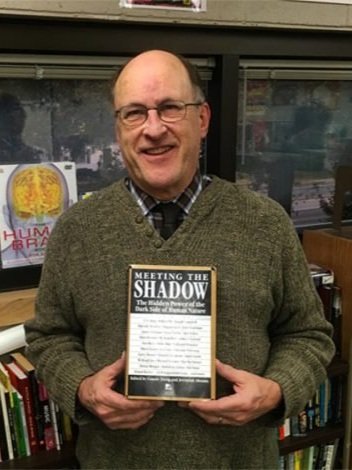Three Scenes from a School Day
By Bill Bornschein | September 14, 2012
For this post I’d like to share three distinct Becker-related observations from a day at school. They do not come together to form an overarching theme; rather, they demonstrate the breadth of application that a Beckeresque perspective provides. Alternately, they may reflect my own focus since I recently told a friend that I divide my life into pre-Becker and post-Becker. Whichever is the case, here goes:
#1) The first scene is from the classroom and reflects “intentional Becker.” We have been studying the nature and function of myth in culture, Joseph Campbell-type material. Looking at both religious and secular mythology, we strive to understand the conditions under which myths thrive or falter. We learn that myths are strongest when they are unconsciously assumed and weakest when they are self-consciously held at arm’s length. As Campbell and others have pointed out, times of rapid change make people aware of the myth as myth. In the words of Walter Truett Anderson, “We are not so much possessed by belief as possessors of belief.” We inhabit our traditional myths in newly self-conscious ways in our postmodern age. I express this new experience by standing in the classroom doorway, one foot in, representing living within the myth, and the other foot outside the door, representing transcending the myth. The dilemma of the self-conscious society is the dilemma of the self-conscious individual writ large: namely, how to live with integrity in the face of reality. Retreats into nihilism and tribalism are options that are clearly present. Standing in the doorway reflects another option, living with traditional myth in a new way. Consider the traditional Biblical creation account, which is geocentric and anthropocentric. Now consider the current state of knowledge about our place in the universe as reflected in this flash animation. What are we supposed to do with this? How do we appropriate tradition in light of such a new perspective? As Becker provides no pat answers, neither do I. The students wrestle with new questions of meaning and tradition and the hope is that the process itself will render them more compassionate and tolerant as they understand their own myths in a less absolute way.
#2) Even as traditional myths undergo stress in the face of rapid change, so too there are newly minted myths that largely escape observation and critique and are quite robust. Chief among these new myths are the myth of progress and the myth of the technological fix. These two myths come together in a new piece of technology that many students own, the iPad. As I strolled through the cafeteria at lunch I noticed a table of eight or nine students sitting with their iPads, each playing a different sports game, football, auto racing, basketball and the like. The students were talking to each other even as their eyes remained riveted on their screens. Two things occurred to me. One was that I was reminded of Becker’s description of philistinism and wondered what he would think of this new technology’s power to distract and trivialize. The second was that the students offered ample evidence of how malleable we truly are. We are training our flexible minds to do new things in new ways, for better or for worse. Some observers like Nicholas Carr, author of The Shallows, warn that the new technology is producing a jumpy human mind that now struggles with sustained focused concentration. Whether one sees the technological revolution as a blessing or a curse, the fact remains that we are remarkably adaptive. Becker warned against a New Age-style apotheosis of man, and yet it is our capacity for change that is our wellspring of hope. We may be locked in to our mortal condition, but we do still have imagination and the capacity to change our direction, if not our fate.
#3) The third Beckerian scene is the most serendipitous. While in the teacher’s lounge I had a conversation with a young English teacher who was upset with a particular student over the creation myth he had composed. It seems the young man, in his story, had envisioned the world as created from the feces of a sacred animal. As it turned out, this was the younger brother of a student who had tried something similar a few years earlier, only making the feces from God directly. “But I didn’t make it God’s poop!” was the younger brother’s defense. The teacher saw disrespect. I saw Becker. It seemed to me that such a creation narrative was psychologically grounded in the human condition in a way that many creation myths are not. Whether or not disrespect was intended, the usage seemed pretty accurate. A quick survey of creation myths revealed what I expected, that creation from feces is a common theme from the Americas to Europe, Africa and Australia. Intuitively, the students were onto something, no shit.

